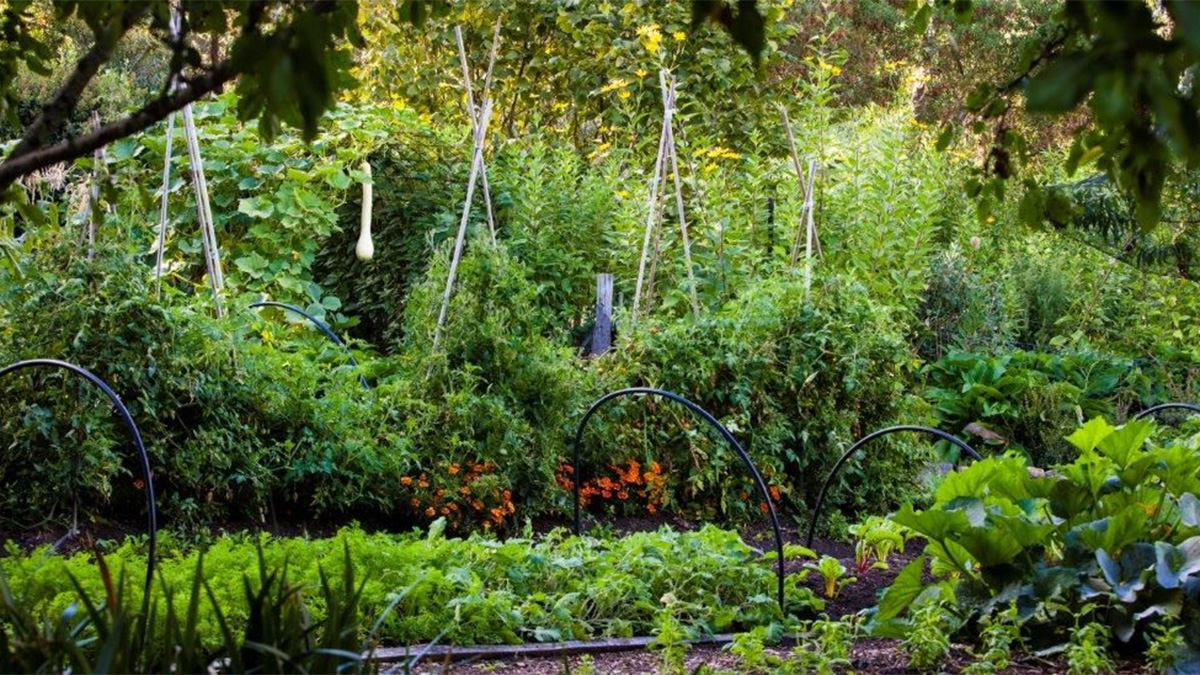Essential Organic Gardening Habits For Long Lasting Success

Organic gardening is rapidly becoming the preferred gardening method for many, thanks to its environmental benefits and the promise of healthier produce. This approach not only enhances the sustainability of your gardening efforts but also promotes long term garden productivity.
However, successful organic gardening requires adopting specific practices that align with nature. In this guide, you’ll discover the essential habits you need to cultivate to achieve lasting organic gardening success.
Embrace soil health as a priority
Healthy soil is the cornerstone of organic gardening. It’s not just a medium for plant growth; it’s a living ecosystem that requires care and nourishment. Prioritizing soil health means ensuring your soil has good structure, plenty of organic matter, and a healthy balance of nutrients and beneficial microorganisms.
Regularly incorporate organic matter into your soil. Compost, manure, grass clippings, and leaf mulch are excellent sources of nutrients that improve soil structure, enhance fertility, and increase microbial activity. Adding compost at the beginning of each growing season replenishes nutrients depleted by previous crops.
Soil testing is another essential habit. A simple soil test kit can reveal the pH level and nutrient content, guiding your amendments to achieve ideal soil conditions for plant growth. Address any nutrient deficiencies or pH imbalances through natural amendments like lime, sulfur, or rock phosphate.
Cover cropping is also beneficial for soil health. Planting cover crops, such as legumes or oats, during off-seasons protects your soil from erosion, adds organic matter, suppresses weeds, and enhances soil fertility through nitrogen fixation.
Related: How to Start a Home Compost Bin to Reduce Waste and Enrich Your Garden
Prevent diseases instead of treating them
Prevention is far more effective than cure, especially in organic gardening, where chemical treatments aren’t typically used. Keeping your plants healthy from the start reduces their susceptibility to diseases.
Select disease resistant plant varieties when planning your garden. Seed packets and plant labels typically indicate resistance to common plant diseases like mildew or blight. Regular garden inspections also help catch disease symptoms early, preventing them from spreading.
Maintain proper plant spacing and good air circulation. Overcrowded plants are more susceptible to diseases due to reduced airflow and increased humidity. Adequate spacing helps prevent conditions that encourage fungal growth and other diseases.
Sanitation practices matter greatly. Regularly remove fallen leaves, spent plants, and debris from your garden area to minimize disease risks. Compost infected plant material separately from your main compost pile or discard it entirely.
Rotate crops to prevent soil-borne diseases from becoming established. Planting the same crops in the same location year after year can cause diseases to build up in the soil. Crop rotation helps break disease cycles and contributes significantly to long-term garden health.
Related: 10 Natural Ways to Keep Pests Out of Your Garden
Prevent and pull weeds instead of spraying with chemicals
Organic gardening methods emphasize manual and preventive weed control strategies over chemical herbicides. Weeds compete with your plants for water, nutrients, and sunlight, making effective weed management critical for garden health.
Regularly inspecting and manually removing weeds before they mature and produce seeds is an essential organic gardening habit. Early removal prevents weeds from establishing extensive root systems that make them harder to control.
Using mulch effectively suppresses weed growth. Organic mulches such as straw, shredded leaves, or wood chips create barriers that block sunlight, discouraging weeds from germinating. Mulching also helps maintain soil moisture, reduces erosion, and slowly adds nutrients to your soil as it decomposes.
Solarization is another chemical-free method of weed control. Cover the affected area with clear plastic sheets during hot weather, allowing the sun’s heat to naturally eliminate weeds and weed seeds beneath the surface. This method requires some planning but provides effective weed control without harmful chemicals.
Grow healthy plants that can withstand a little pest damage
In organic gardening, the focus is on nurturing robust plants capable of naturally resisting pests and recovering from minor pest damage. Strong, healthy plants possess built-in defenses, reducing the need for chemical interventions.
Start by selecting high-quality seeds and plants suited to your environment and climate. Providing optimal growing conditions sufficient sunlight, proper watering, and regular feeding supports plant resilience.
Beneficial insects like ladybugs, lacewings, and parasitic wasps are invaluable allies in controlling garden pests naturally. Create a welcoming habitat for these beneficial insects by planting diverse flowers, herbs, and native plants.
Understanding pest life cycles helps target control methods effectively. Regular garden monitoring allows early detection and prompt action if pests begin causing significant damage. Natural remedies such as insecticidal soaps, neem oil, or diatomaceous earth can manage pest populations without harming beneficial insects or the environment.
Adopting a tolerant mindset toward minor pest damage is beneficial. Not all pest damage requires intervention; healthy plants typically recover from small infestations, and tolerating minor imperfections helps maintain a balanced ecosystem.
Practice proper crop rotation & companion planting
Crop rotation and companion planting are two powerful organic gardening strategies that naturally improve garden productivity and health.
Crop rotation involves changing the type of plants grown in specific garden areas each season to prevent nutrient depletion and disease accumulation. Rotating plant families such as legumes, leafy greens, root vegetables, and fruiting plants helps maintain balanced soil fertility and disrupts pest and disease cycles. Keep a garden record to track rotation plans effectively.
Companion planting means strategically growing plants together to benefit each other. Some plants enhance the growth and yield of others through improved soil nutrition, pest deterrence, or pollinator attraction. For example, planting marigolds near tomatoes helps deter nematodes and pests, while beans fix nitrogen that benefits neighboring plants like corn or leafy greens.
Experimenting with various companion planting combinations can improve overall garden yield and resilience, reducing your reliance on external inputs.
Choose the right plants for your climate and garden
Selecting plant varieties that naturally thrive in your specific climate and garden conditions is essential for organic gardening success. Native plants or those adapted to your region are typically more resistant to local pests, diseases, and weather conditions, reducing the need for intensive maintenance and interventions.
Research your area’s climate, seasonal patterns, and common gardening challenges before planting. Local gardening groups, nurseries, or agricultural extension services provide valuable information and plant recommendations tailored to your region.
Consider microclimates within your garden. Shade, wind protection, drainage, and soil composition variations can significantly influence plant health and productivity. Matching plants to appropriate microclimates ensures they receive optimal conditions for growth.
Testing new varieties occasionally is beneficial, but prioritize reliable, locally adapted plants to consistently achieve the best results. Over time, this approach creates a more resilient garden ecosystem, simplifying ongoing maintenance and improving long-term outcomes.
Conclusion
Achieving long-term organic gardening success requires dedication, planning, and adopting sustainable practices. Prioritizing soil health, proactive disease prevention, chemical free weed control, growing resilient plants, effective crop rotation, companion planting, and careful plant selection tailored to your climate form the foundation of successful organic gardening.
By consistently incorporating these habits into your gardening routine, you will develop a productive, healthy, and sustainable organic garden capable of thriving year after year. Embrace these essential habits, and enjoy the lasting rewards of an abundant, environmentally friendly gardening practice.
